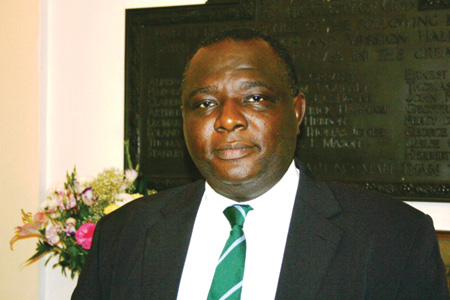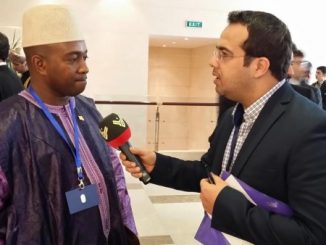
On another level, there are those who contend that violence may mark the turning point in these jollities once the festive season ends and the country moves even closer to the timeline set for electioneering and campaigns. The evidence of deep rooted local animosities and the perception that some groups have favoured better under this administration than others and also in some cases at the detriment to the progress of others raise the spectre of electoral violence and an uneasy instability that would leave some areas disenfranchised due to cancelled polls and suspended voting. Incidentally, one of the more agitated community that is already fermenting internal violence is Kono District in the Eastern part of the country. In the event, the new Inspector General of Police may have his work and tenure cut out for him if the policing strategy is not managed with tact and tenacity. In his favour, Dr Richard Moigbe is known to be a firm but fair man and a consummate professional who will use his wide experience of the local terrain and technical capacity to handle public order events in his home District.
Political observers have however pointed to the rush for political party symbols as an unnerving trend and a situation that many consider to be bad for our democracy. There is the first thoughts of the experience of the APC flag bearer selection process that saw a candidate emerge out of a field of 28 persons and the initial recriminations that ensued even from within the Party. There follows necessarily that the same levels of disappointment and euphoria will grip the Party again when certain candidates are chosen to carry the APC flag at all levels, be it councillor, Mayor or District Council Chair and MP. It is already looking likely that such disappointments would be more widely felt in the Western Area, a stronghold of the APC but a region where the APC has to be very careful not to disappoint itself by selecting the wrong candidates. Having said that, there are considerations that must supersede the ordinary challenges of sentimentality and pandering to the galleries.
While many of the new opposition parties are excused from such troubles, the established parties of the APC and the SLPP are bound to have these difficulties of selecting the best candidates especially in their heartlands where a win is a statistical certainty. In such cases, the Party would face internal struggles and the outbreak of violence within its own ranks. In the tradition of the “Paopa” brigade, these violent clashes would be more gruesome and may act as practicing ground for a wider violence as the elections campaigns move on to the street parades and rallies. The APC on the other hand may have to deploy a more ordered process by engaging aspirants to consolidate its votes and manage the symbol award process less disturbing by preparing losers well in advance.
The bad thing for democracy may result in the selection process having no proper foundational rule for selecting those who would be able to demonstrate vibrancy in challenging government and holding government into account. The polarization of the new political parties against the APC as a single opponent would only increase the chances of the APC’s supporters to consolidate local support and build firmer structures within their strongholds. The tendency for the new parties to split the votes of the disaffected and the disparaged would therefrom result in a strengthened APC in Parliament and some Local Councils. The challenge therefore is for the character of persons selected as representatives to be evenly matched in terms of skillsets and educational attainment so as to ensure that we get a balanced Parliament with an enhanced gender parity ratio.
All in all, it is very likely that the stronger, more established parties would hold their own in their traditional strongholds while large cities and urban areas become the epicentres for the real politics. The swing voters will swing till elections day and some will even fall off the radar due to disappointment and disaffection at the process. Those who are left to take on the final battle must be well groomed and capacitated to provide a better level of service to their communities. In the area of political violence, it is clear that a firm but fair policing strategy would go a far way in managing the security concerns that many have, provided that the Police can be assisted to rise up and face the challenges of capacity and resources.



